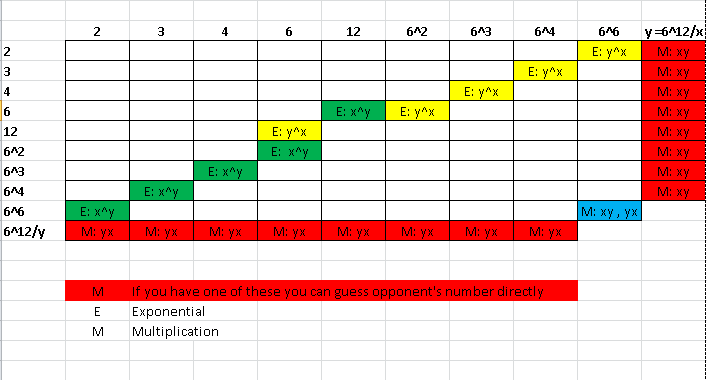There are two mathematicians with incredibly strong memories sitting in a coffee shop passing the time. Their server proposes a game:
First, he gives them a large number:
$2176782336$
Then he whispers a number $x$ to the first mathematician, and another number $y$ to the second mathematician. Afterwards, he tells them that the first large number is either the product of the two numbers, or one number raised to the power of the other.
He promises to pay for their order if they can each demonstrate that they know the other's number without offering each other any additional information.
After along silence this conversation takes place .
- The first mathematician declares: I don't know your number.
- The second mathematician says: Now I know your number.
- The first mathematician states: Now I think I know both numbers.
Before anyone announces these numbers, the manager of the cafe promises to award a prize to the first person in the coffee shop who succeeds in discovering what they are. Can you find $x$ and $y$?
-Note:
(x, y) differs from (y, x)
Silence is significative , and everyone knows this

